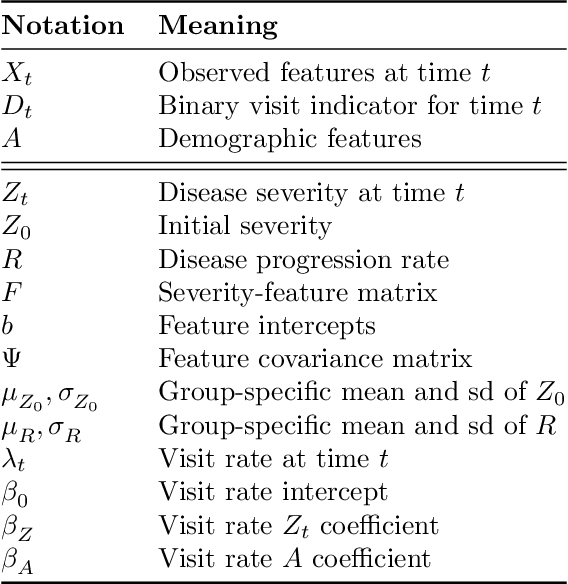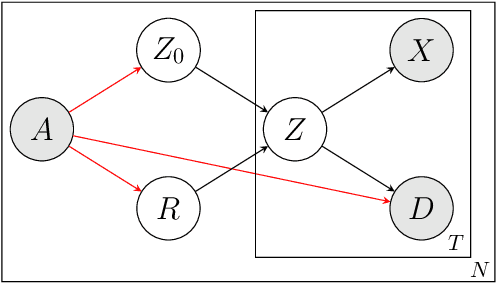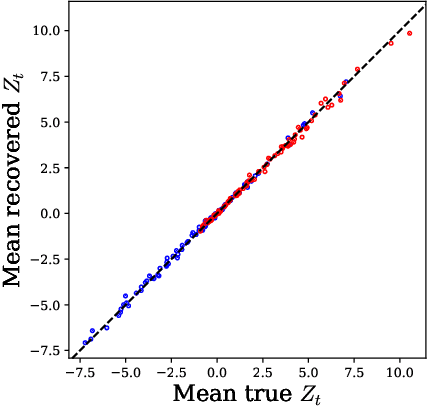Nir Uriel
Learning Disease Progression Models That Capture Health Disparities
Dec 20, 2024



Abstract:Disease progression models are widely used to inform the diagnosis and treatment of many progressive diseases. However, a significant limitation of existing models is that they do not account for health disparities that can bias the observed data. To address this, we develop an interpretable Bayesian disease progression model that captures three key health disparities: certain patient populations may (1) start receiving care only when their disease is more severe, (2) experience faster disease progression even while receiving care, or (3) receive follow-up care less frequently conditional on disease severity. We show theoretically and empirically that failing to account for disparities produces biased estimates of severity (underestimating severity for disadvantaged groups, for example). On a dataset of heart failure patients, we show that our model can identify groups that face each type of health disparity, and that accounting for these disparities meaningfully shifts which patients are considered high-risk.
 Add to Chrome
Add to Chrome Add to Firefox
Add to Firefox Add to Edge
Add to Edge